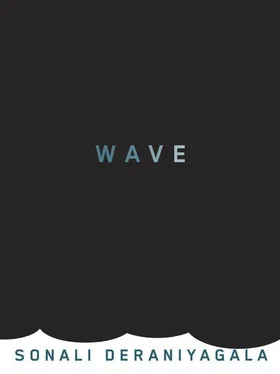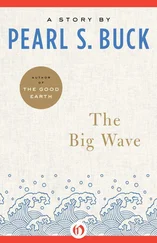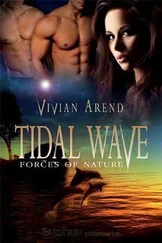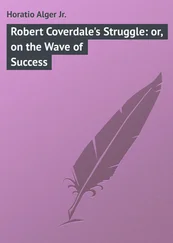But another misty spout beckoned from a few miles in front, and my want for wild wonder got the better of me. Blue whales, I was roused. Then that music from The Blue Planet came back to me, the BBC Concert Orchestra playing that hymnlike blue whale score. I flinched and bullied my memory. Put a sock in it, give it a rest.
Now Malathi and I cling to the rails on this open deck, our eyes transfixed on the two blue whales alongside the boat. We are heady, enthralled. This is the largest creature that has possibly ever lived and, as Malathi tells me, one of the most elusive. Rajesh has turned the boat’s engine off. The sea slops against the hull.
It’s hard to comprehend a creature of such unearthly dimensions. The two whales rotate around our boat, they move with effortless grace, seeming to have some powerful purpose. The sight of them is staggering, the sensation sacred. I am happy to be here, thankful even.
I want every detail. I want to take in all this blue whale magic, maybe more so because Vik can’t. I search the ocean as he would. There is a stir in the water, a foamy mass heralds the head that rises to the surface, its shape an ancient arch. The whale breathes, and a flare of water fizzes in the air. I want to see more now, I want the head to lift higher, that huge pleated jaw, or better still, maybe this whale will breach. But I am left wanting, soon the head is submerged.
They keep their hugeness hidden, these whales, rarely revealing themselves whole to my eager eyes. As one of them cruises underwater, I see burst after burst of glowing blue. When the other breaks surface, the front of its body curves back into the ocean as the rest of it emerges, and the swiftness of this glide gives no hint of hauling impossible bulk. The whales keep their mystery. I am left to infer their might.
The men working on the boat tell us they haven’t sighted whales in this sea for some days now. Not since the tsunami in Japan, they say, and they wonder if these creatures were disturbed by it. It is five days now since the earthquake and tsunami hit Japan. And I’ve not been able to keep away from those television images. As much as they horrify me, I want to see the meanness of that black water as it crumples whole cities in its path. So this is what got us, I thought, when I saw waves leaping over seawalls in Japan. This is what I was churning in. I never saw the scale of it then. This same ocean. Staring at me now all blue and innocent. How it turned.
Where were these whales when the sea came for us? I wonder. Were they in this same ocean? Did they feel a strangeness then? Another whale who was in the distance has come closer now. I hear a loud, low bellow as it exhales. Now the whale inhales. Resounding in this vastness I hear a doleful sigh.
I am hushed. I sit now on a damp cushion on the floor of this boat, not compelled anymore to grab every glimpse of these whales. My earlier discord eases. I don’t dread whales without Vik. I don’t need so much to duck and dive from remembering. I am unclenched and calmed by the beauty of these creatures, by their pureness, and I savor this relief. Then again I look. This is amazing, now a whale shits. A vast crimson slick slowly fades into the blue water. Ah, you should see this, Vik. All that krill.
I want to stay on this boat forever. I am lulled by the breeze from the sea and the rocking boat. In this endless expanse of ocean, I feel snug. These blue whales are unreal and baffling, yet surrounded by them I settle awhile. Somehow on this boat I can rest with my disbelief about what happened, and with the impossible truth of my loss, which I have to compress often and misshape, just so I can bear it — so I can cook or teach or floss my teeth. Maybe the majesty of these creatures loosens my heart so I can hold it whole. Or have I been put in a trance by these otherworldly blue whales?
It feels as though I am in a dream here, in this slow haze of sea and sky. A whale now dives. For the first time I see the great flukes of a blue whale tail rise out of the water. The dive takes just moments, but for me this time slowly unfurls. The water sliding off that lifted tail seems to freeze into stalactites.
And I remember now another dream. Some months after the wave, Anita told me about a dream Kristiana had. She was eight years old then, bewildered by the loss of her friends. One morning at breakfast, Kristiana insisted that Vik and Malli had come back home. She talked about her dream of the previous night. She saw Vik and Mal, they were holding hands, they were walking out of the sea.
The tail of the diving whale slaps down and vanishes into the blue. This is a deep dive, the whale has left us. I see the glassy imprint of its tail tremble on the water, but soon it smooths away. The ocean is losing its morning stillness. It’s gone noon, waves gather, the boat shudders.
We head back to shore, and I tell Malathi that blue whales and Steve and I go back a long way. There was an early story that Steve told me. It made me notice him as more than an always-drunk eighteen-year-old from East London who’d made it to Cambridge. He’d described to me an experience he had on his first visit to the Natural History Museum when he was six years old. It was a school trip. He walked into the Blue Whale Gallery not knowing what was awaiting him. Then he saw the life-size model of a blue whale. The intensity of feeling that arose in him made tears stream from his eyes, he said. He was utterly overwhelmed, this was the most stirred he’d ever been. He’d never suspected such magnificence could exist. He was a little boy who’d rarely ventured outside the block of council flats he lived in, and now this sight, an epiphany. But he was also fearful. He knew he’d be tormented by his friends if they saw even a hint of his tears. In his inner-city school, even if you were only six, you couldn’t cry about whales.
B efore I left Colombo for Cambridge at the age of eighteen, my mother fussed about the bland English food I’d have to eat and tried to teach me to cook dhal. But onions made me nervous. I’d been this way since I was three, when my aunts locked me in the onion room in my grandmother’s house — to punish me for disturbing their afternoon siesta, most likely. That shadowy room was scattered with wicker baskets swarming with small red onions. From that day I hadn’t been able to touch an onion or eat it raw — an onion peel drifting somewhere in the house, and I’d call for someone to clear it away. Apart from onions I wasn’t anxious about anything when I went to university. I was leaving Sri Lanka for the first time, I’d never lived away from my family, and I was parting from all my friends in the girls’ school I’d been to since I was four. But I was unperturbed. Everything that mattered then — studying, making friends, flirting — came easily to me, and I was cheerily secure. But Aaththa, my grandmother, worried for me. Every evening, after scolding the servants for bruising the jasmines they’d picked for her, she would light an oil lamp and offer the ruined flowers to a stone Buddha and pray that I wouldn’t marry an ali wandura— an “albino monkey,” aka a white man.
During my first winter in Cambridge in 1981, it snowed so heavily that my self-assurance crumpled. I regarded the icy mess that was the Huntingdon Road in dismay — to get to lectures, I have to cycle two miles on that ? My new friends were patient. Their bikes flanked mine on either side and back and front as I teetered along. We quickly became a close-knit group, those of us who read economics at Girton, spending most of our waking hours together, moving in a pack. When I first met David and Alan, they announced to me that they’d come to Cambridge for “excellence, excellence, excellence,” but a few months later, David was skipping lectures with me so we could listen to Our Tune on Radio One. Lester, who was a year above us, would sometimes try to hide his East London heritage during Formal Hall by pretending, unsuccessfully, that he was a Nigerian prince. Clive impressed us all, he’d had a gap year and gone busking with his fiddle in Mexico. Seok, who was from Singapore, and I were the foreigners. Not only was she more skilled on a bicycle than I was, she wore punk makeup and Goth clothes. I wore a bright blue Michelin Man — looking jacket given to me by my aunt.
Читать дальше












